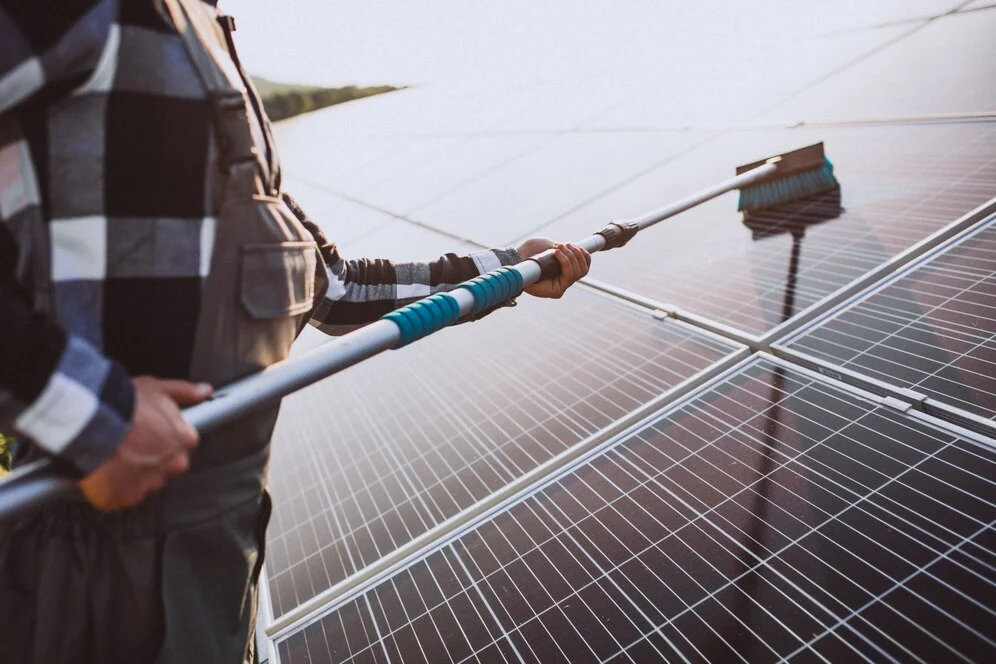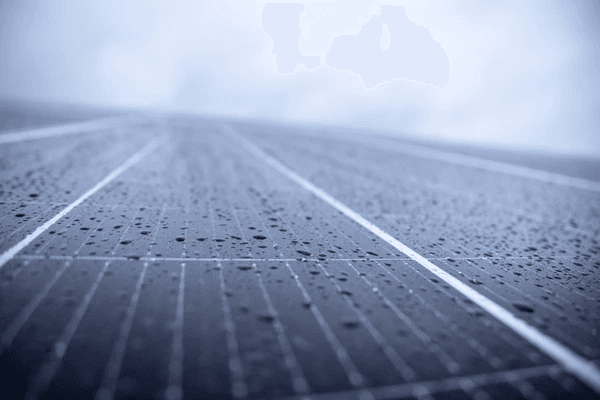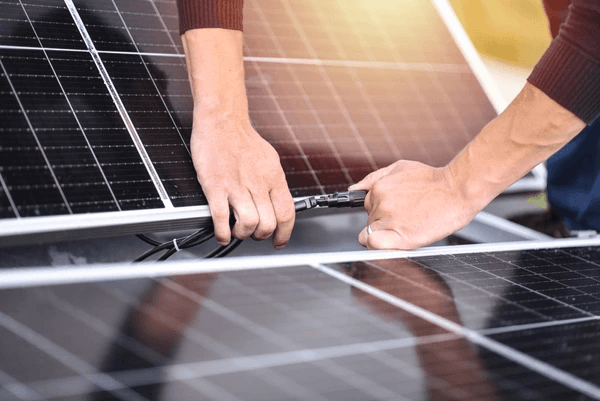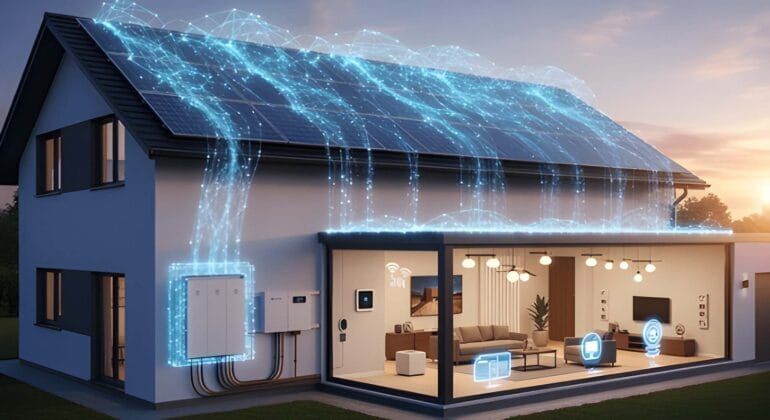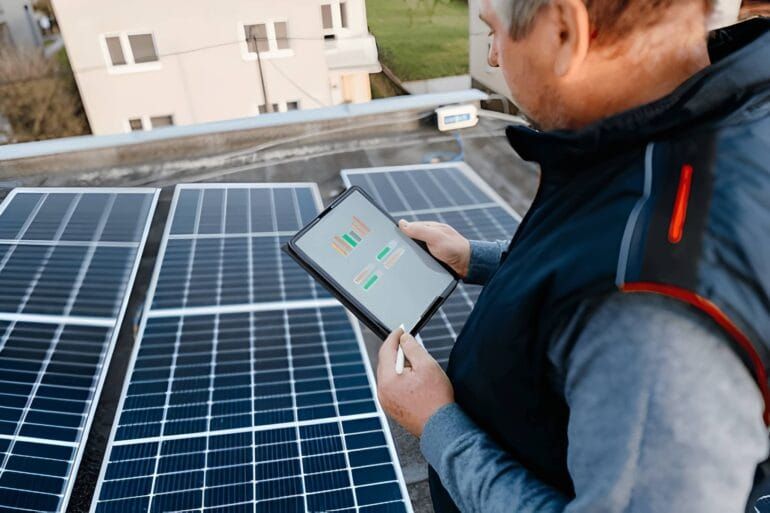Keeping your solar panels clean is crucial to ensure they function optimally and continue to save you money on energy costs. But how often should you clean Solar panels? In this article, we’ll delve into the factors that influence cleaning frequency, the benefits of keeping your panels spotless, and whether you should tackle the job yourself or hire a professional.
Understanding Solar Panels
How Solar Panels Work
Solar panels work by harnessing the energy from sunlight and converting it into electricity through photovoltaic cells. These cells are typically made from silicon and other materials that generate electricity when sunlight strikes them. The photovoltaic effect creates an electric current, which is then captured and converted into usable electricity by an inverter. This electricity can power homes, businesses, or be fed back into the grid.
Types of Solar Panels
- Monocrystalline Panels: These are made from single-crystal silicon and are known for their high efficiency and sleek appearance. They are space-efficient and perform well in low-light conditions.
- Polycrystalline Panels: Made from silicon fragments melted together, these panels are less expensive to manufacture but slightly less efficient than monocrystalline panels. They are recognizable by their blue color and are a common choice for residential installations.
- Thin-Film Panels: These panels use layers of photovoltaic material deposited onto a substrate such as glass or metal. They are lightweight, flexible, and less efficient than crystalline panels but can be used in applications where traditional panels are not suitable.
Why Cleaning Solar Panels is Important
Impact on Efficiency
Clean solar panels can absorb more sunlight and convert it into electricity more effectively. Even a thin layer of dust or dirt can reduce the panels’ efficiency by blocking sunlight. Regular cleaning ensures maximum energy production.
Longevity of Solar Panels
Proper maintenance, including regular cleaning, can extend the lifespan of solar panels. Dust, bird droppings, leaves, and other debris can degrade panel materials over time if left unchecked. Cleaning prevents buildup that could lead to corrosion or physical damage.
Factors Affecting Cleaning Frequency
Environmental Conditions
Areas with high dust, pollen, or pollution levels will require more frequent cleaning. Rain can naturally rinse panels, but in dry or dusty climates, manual cleaning may be necessary more often.
Panel Location
Ground-mounted panels are more susceptible to dirt and debris compared to roof-mounted panels. Panels located near trees may accumulate more leaves, sap, or bird droppings.
Seasonal Considerations
Cleaning needs may vary by season. For instance, pollen may be more prevalent in spring, while fall may bring more leaves. Winter may require less cleaning due to rain or snowfall.
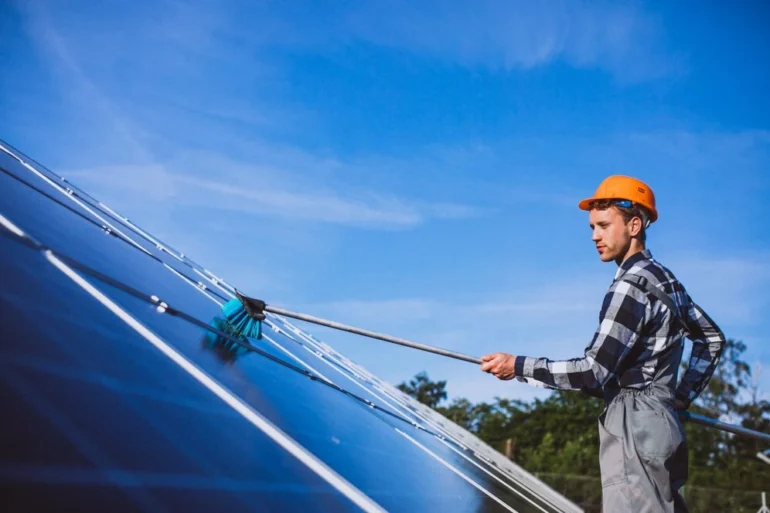
General Cleaning Guidelines
Recommended Cleaning Frequency
Experts generally recommend cleaning solar panels every 6 months to 1 year. However, this can vary based on local environmental conditions and the tilt of the panels. Panels with a steeper tilt may naturally shed debris more easily.
Signs That Your Panels Need Cleaning
- Visible Dirt or Debris: If you can see dirt, dust, bird droppings, or other debris covering your panels.
- Drop in Energy Production: Monitor your energy production through your solar system’s monitoring tools. A noticeable decrease in output could indicate dirty panels.
DIY vs. Professional Cleaning
Pros and Cons of DIY Cleaning
- Pros: Cost-effective, especially for accessible panels. You can schedule cleaning as needed.
- Cons: Risk of damage if cleaning techniques or tools are not appropriate. Safety risks, especially for roof-mounted panels.
When to Hire a Professional
- Difficult Access: For panels located on roofs or in areas that are hard to reach safely.
- Complex Systems: If your solar panel system is large or interconnected with other systems (like battery storage), professionals may ensure cleaning is done without disrupting other components.
- Safety Concerns: If you’re uncomfortable working at heights or unsure about proper cleaning techniques.
Cleaning Techniques and Tools
Basic Cleaning Tools
- Soft Brush or Broom: Use a soft-bristled brush or a non-abrasive broom to gently sweep away loose debris and dirt. Avoid brushes with stiff bristles that could scratch the surface of the panels.
- Sponge or Soft Cloth: For tougher dirt or bird droppings, use a sponge or soft cloth soaked in water to gently scrub the panels. Microfiber cloths are ideal as they are non-abrasive and lint-free.
- Hose with a Spray Nozzle: Use a hose with a gentle spray nozzle attachment to rinse the panels after dry cleaning. Avoid using high-pressure washers, as they could damage the panels or their seals.
- Bucket of Water: Prepare a bucket of clean water mixed with a mild detergent (if needed) for stubborn dirt or oily residue. Use a gentle detergent like dish soap or a specialized solar panel cleaning solution.
Step-by-Step Cleaning Process
- Safety Precautions: Ensure the panels are cool to the touch to avoid thermal shock. Work early in the morning or late in the afternoon to prevent water from evaporating too quickly.
- Dry Cleaning: Begin by using a soft brush or broom to gently sweep away loose debris and dust from the panels. This step reduces the amount of water and scrubbing needed.
- Wet Cleaning: Use a hose with a gentle spray to rinse the panels thoroughly. Start from the top and work your way down to ensure all debris is washed away.
- Soap Solution (if needed): If there are stubborn stains or oily residue, prepare a bucket of water with a mild detergent. Use a soft sponge or cloth to gently scrub the panels, then rinse thoroughly with clean water.
- Final Rinse: Finish by rinsing the panels again with clean water to remove any soap residue. Allow the panels to air dry or gently wipe them with a clean, dry microfiber cloth.
Safety Tips
- Turn Off Power: If you need to touch electrical components during cleaning, ensure the solar system is turned off to prevent electric shock.
- Use Ladders Safely: When cleaning roof-mounted panels, use a stable ladder and have someone assist you if possible.
- Avoid Harsh Chemicals: Stick to mild detergents or specialized solar panel cleaners to prevent damage to the panels or their coatings.
Common Mistakes to Avoid
- Using Harsh Chemicals: Avoid using abrasive cleaners, harsh chemicals, or abrasive materials that can scratch or damage the panels.
- Overuse of Water: Excessive water usage can lead to streaking or pooling, which may interfere with panel performance. Use water sparingly and ensure thorough rinsing.
- Cleaning in Direct Sunlight: Cleaning panels in direct sunlight can cause cleaning solutions to evaporate quickly, leaving streaks or residue.
Solar Panel Cleaning and Energy Savings
Potential Energy Gains
Clean solar panels can significantly improve energy production efficiency by allowing more sunlight to penetrate the photovoltaic cells. Studies have shown that dirty panels can reduce efficiency by up to 25%, depending on the amount of dirt and debris covering the surface.
Cost-Benefit Analysis
Regular cleaning of solar panels can lead to increased energy generation, resulting in higher savings on electricity bills. The cost of cleaning materials and time invested in cleaning is typically outweighed by the increased energy output, making it a cost-effective maintenance practice over the long term.
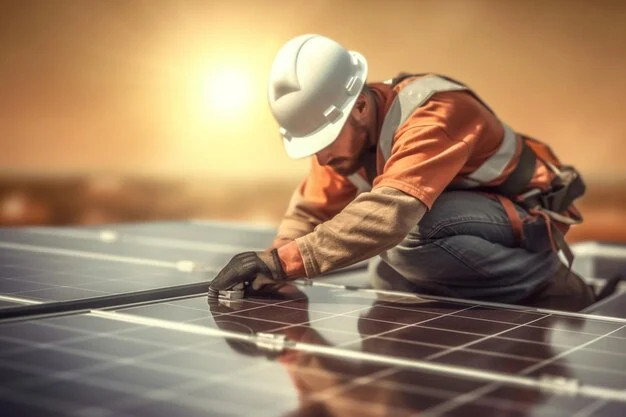
How Often Should You Clean Solar Panels?
Determining how often to clean your solar panels depends on several factors related to your local environment and the condition of your panels. Here are key considerations:
Environmental Conditions
- Dust and Pollen: If you live in an area with high dust or pollen levels, your panels may require more frequent cleaning. Pollen, in particular, can accumulate quickly during certain times of the year.
- Rainfall: Regions with frequent rain may naturally clean panels to some extent. However, occasional rain might not be enough to remove all types of debris.
Panel Tilt and Orientation
- Panels with a steep tilt angle (greater than 5 degrees) are less likely to accumulate debris compared to panels with a shallow tilt angle.
- South-facing panels typically receive more sunlight and may accumulate more dirt compared to panels facing other directions.
Seasonal Variations
- Spring and Fall: These seasons may bring increased pollen, leaves, or other debris that can accumulate on panels.
- Summer: Dry weather and dust can build up on panels during summer months.
- Winter: Depending on your location, snow can cover panels, affecting their efficiency until it melts or is cleared.
Monitoring Energy Output
- Keep an eye on your solar system’s performance through monitoring tools provided by your installer or manufacturer. A noticeable drop in energy production could indicate that cleaning is needed.
Manufacturer’s Recommendations
- Check the maintenance guidelines provided by your solar panel manufacturer or installer. They may recommend specific cleaning intervals or methods tailored to your panels.
Recommended Cleaning Frequency
- General Guideline: Experts typically recommend cleaning solar panels every 6 months to 1 year under normal conditions.
- Adjust Based on Conditions: Increase cleaning frequency if you notice significant dirt buildup, reduced energy production, or live in a dusty or pollen-heavy area.
- Seasonal Considerations: Clean panels more frequently during seasons with higher debris accumulation, such as spring and fall.
Maintenance Beyond Cleaning
Solar panel maintenance involves more than just regular cleaning. Here are essential aspects to consider:
Regular Inspections
Regular inspections help identify potential issues early and ensure your solar panels operate efficiently over their lifespan. Here’s what to look for:
- Physical Damage: Inspect panels for cracks, chips, or other physical damage that could affect performance.
- Connections and Wiring: Check electrical connections and wiring for signs of wear, corrosion, or loose connections.
- Inverter Operation: Monitor the inverter to ensure it’s functioning correctly and efficiently converting DC electricity to AC.
- Mounting and Racking: Ensure mounts and racks are secure and stable, especially after severe weather conditions.
Troubleshooting Common Issues
Understanding and addressing common issues can help maintain the performance of your solar energy system:
- Shading: Monitor for shading from nearby trees, buildings, or other structures that may reduce panel efficiency. Consider trimming trees or adjusting panel placement if shading is significant.
- Inverter Issues: Keep an eye on inverter performance indicators. Issues such as error codes, blinking lights, or unusual noises may indicate problems that require professional attention.
- Monitoring System Alerts: Stay informed about alerts from your monitoring system, such as low performance or communication errors. Investigate and resolve issues promptly to avoid prolonged inefficiencies.
Professional Maintenance
While basic inspections and troubleshooting can be done by homeowners, some maintenance tasks are best handled by professionals:
- Electrical Work: Any electrical maintenance or repairs should be conducted by qualified electricians to ensure safety and compliance with local regulations.
- Complex Repairs: Repairs involving panel replacement, inverter servicing, or structural adjustments should be performed by experienced solar technicians.
- Warranty Compliance: Follow manufacturer recommendations for maintenance to maintain warranty coverage. Professional maintenance often includes thorough checks and adherence to warranty terms.
Conclusion
Regular cleaning and maintenance of your solar panels are essential to ensure optimal energy production and prolong their lifespan. By understanding your local environment, monitoring panel performance, and following recommended cleaning intervals, you can maximize the efficiency and savings from your solar energy system. Adjust your cleaning schedule as needed to keep your panels in peak condition throughout the year.
FAQs
How often should I clean my solar panels?
Clean your solar panels every 6 months to 1 year under normal conditions. Increase frequency if you notice significant dirt buildup or decreased energy production.
What is the best way to clean solar panels?
Use a soft brush or non-abrasive broom to dry clean, then rinse with a gentle hose spray. For stubborn dirt, use a mild soap solution with a soft sponge or cloth. Avoid using abrasive materials or high-pressure washers.
Can I use a pressure washer to clean my solar panels?
No, it’s not recommended. Pressure washers can damage solar panels and their components, potentially causing leaks or electrical hazards. Stick to gentler cleaning methods to protect your panels and ensure their longevity.
